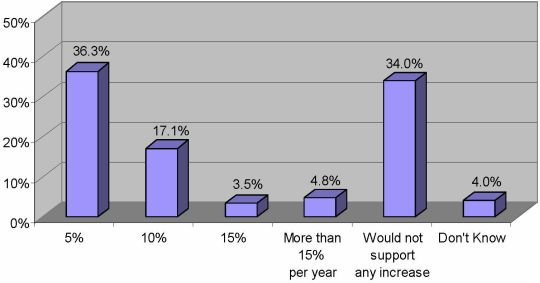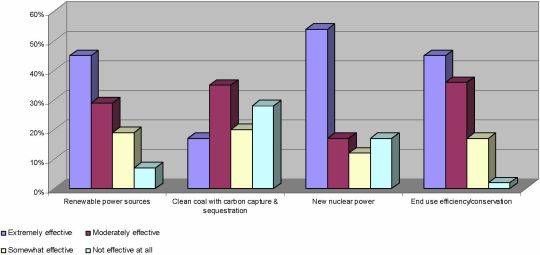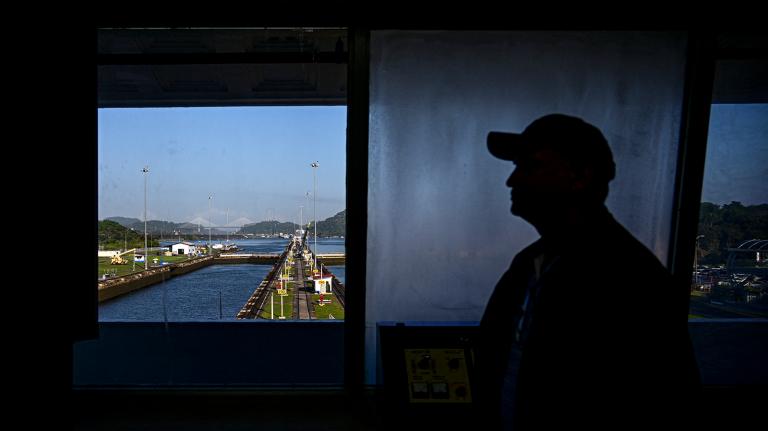On Monday, consultant firm Deloitte released two new surveys, one of consumers and one of utility regulators. There’s some fairly interesting stuff in there.
First off, some 87 percent of utility regulators expect the cost of producing electricity to rise next year. Why? Here’s what they attribute it to:
- Fuel prices (35 percent).
- Environmental compliance (23 percent).
- Capital costs (21 percent).
- Inflation (11 percent).
Asked to rate options by their ability to feasibly reduce GHG emissions, this is what regulators said (click for larger version):
Guess the people in a position to actually commission “clean coal” aren’t as enamored of it as some politicians.
Interestingly, when asked the biggest barrier to expanding renewables, the most common answer, with 26 percent, was “transmission constraints,” followed by high prices with 23 percent.
How about consumers?
I always find these consumer surveys a little less interesting, since most consumers don’t know WTF they’re talking about and their answers can easily be affected by framing and phrasing.
The one relevant question, to me, was this: “How much of an annual increase in electricity rates would you accept to stop greenhouse gas emissions from electric generation sources in your state?” Survey says:

So we’re left with what we already knew: Almost everyone is “concerned,” but no one is willing to sacrifice.


